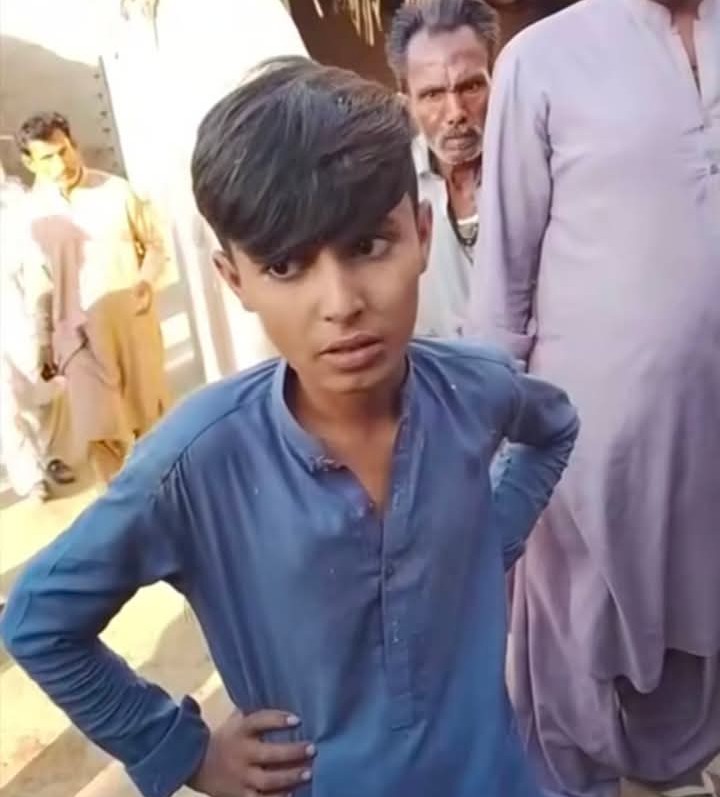Ahmedpur, Punjab🇵🇰– The conversion of a historic Hindu temple into a mosque in Ahmedpur, Punjab, has reignited debates about cultural erasure, historical revisionism, and the rights of religious minorities in Pakistan. The temple, once dedicated to Shri Krishna, now stands as a mosque, its original identity sealed behind bricks and mortar. This transformation is not just a religious shift but a symbol of the broader erasure of non-Islamic heritage in the country.
The Controversy: From Temple to Mosque
Two years ago, a temple in Ahmedpur, Punjab, which once housed the deity Shri Krishna, was converted into a mosque. The structure, now repurposed for Islamic worship, has been sealed and altered, effectively erasing its Hindu past. Local religious leaders, including the mosque’s Maulana, claim the conversion occurred approximately 70 years ago, dismissing assertions that the building was originally a haveli (mansion) or a temple.
However, historical accounts and local testimonies suggest otherwise. The temple’s transformation is part of a long-standing pattern of repurposing or demolishing non-Islamic religious sites, particularly those linked to the Hindu and Sikh communities that once thrived in the region.
Cultural Cleansing: A Systematic Erasure
The conversion of the Shri Krishna temple is not an isolated incident. Since the partition of India in 1947, Pakistan has witnessed a gradual but persistent erasure of its non-Islamic cultural heritage. Temples, gurudwaras, and historical sites associated with Hindu and Sikh communities have been demolished, abandoned, or repurposed—often with little regard for their historical or spiritual significance.
Key Examples of Cultural Erasure:
- Temples Converted to Mosques: Numerous Hindu temples across Punjab and Sindh have been converted into mosques or madrasas, with their original identities obscured or denied.
- Destruction of Sikh Gurdwaras: Many gurudwaras, once sacred to the Sikh community, now lie in ruins or have been repurposed for other uses.
- Rewriting History: School curricula and public narratives often omit or downplay the contributions of non-Muslim communities to the region’s history, further marginalizing their legacy.
- Legal and Social Barriers: Minorities face systemic discrimination in accessing justice, preserving their heritage, or even practicing their faith freely.
The Broader Implications: Identity and Belonging
The erasure of non-Islamic heritage is not merely about bricks and mortar- it is about identity, memory, and belonging. For Pakistan’s Hindu and Sikh communities, these sites are tangible links to their ancestors and cultural roots. Their destruction or conversion sends a clear message: their history is not welcome in the “Islamic Republic of Pakistan.”
This cultural cleansing raises critical questions:
- What does it mean for a nation to erase the histories of its own people?
- How can minorities preserve their identity in a state that increasingly denies their existence?
- What are the long-term consequences of such erasure on Pakistan’s social fabric?
A Call for Preservation and Reconciliation
While Pakistan’s identity as an Islamic republic is enshrined in its constitution, the rights of religious minorities—including the preservation of their cultural and historical sites—must also be protected. International human rights organizations and local activists have repeatedly called for:
- Legal protections for minority religious sites.
- Restoration and preservation of historical temples, gurudwaras, and churches.
- Inclusive education that acknowledges the contributions of all communities to Pakistan’s history.
- Accountability for those who destroy or repurpose minority heritage sites without justification.
As one local activist noted, “A nation that forgets its past is doomed to repeat its mistakes. Pakistan must decide whether it wants to be a land that celebrates its diversity or one that erases it.”
Conclusion: The Future of Pakistan’s Cultural Heritage
The conversion of the Shri Krishna temple in Ahmedpur is a stark reminder of the challenges faced by Pakistan’s religious minorities. It reflects a deep-seated obsession with homogenizing the nation’s identity, often at the expense of its rich, pluralistic past.
If this trend continues, what remains of Pakistan’s non-Islamic heritage may soon vanish entirely—leaving future generations with a sanitized, monolithic version of history. The question remains: Will Pakistan choose to preserve its diversity, or will it continue down the path of cultural erasure?
#SavePakistaniHeritage #MinorityRights #CulturalErasure #PreserveHistory






